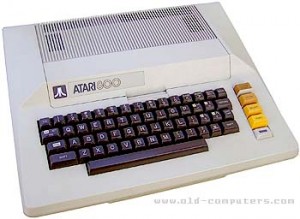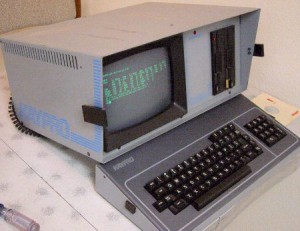In 1974 one of the requirements at Pace University, where I was working on my MS in educational administration, was that we take an introductory course in computer science, and so I did. The computer at the time was an entire room with all sorts of impressive-looking reels, bins, dials, and flashing lights. You punched in data, and the machine spewed out so-called IBM cards with small, rectangular holes. It was an interesting course, requiring the acquisition of binary arithmetic and some basic programming skill. The final in the course consisted of writing a small program. I opted to write a program for the match game in Last Year in Marienbad, a movie that had been popular a few years before. In the movie, one of the characters cadges drinks in a bar by defeating all comers at the game, which involved fifteen matches. I had figured out the game, which required only a bit of memory, and could have played the match game in Marienbad with considerable success, should I ever have the need to go there. Actually, I did wind up in Marienbad years later, after it had been renamed Marianske Lazne, but that is another story. My computer version of the game actually worked, and I passed the course, got my degree, but wasn’t yet fascinated by computers. That came later, about ten years later, when I was at Columbia’s Teachers College working on my doctorate.
One of the last courses I had to take at Teachers College was Research Development. I don’t think that the course would have been all that interesting if it hadn’t been for the young man who taught the course. Regretfully, I don’t remember his name, but he had been involved at RCA with the development of the first data disks and was all excited about the coming computer revolution. In passing, he mentioned that personal computers were now on the market with 64 Kilobytes of memory, a fantastic number at the time. Naturally, I had to have one of these miraculous machines. My plan was to write my own word processing program, and to do my dissertation on it.
My first computer was a wonderful Atari 800. It took me a day and a half to figure out what the detached disk drive had to do with the rest of the machine, but I did eventually get it to work. Soon after I got the Atari, the first of the word processing programs appeared. and there was no longer a need for me to write my own program, which in retrospect I doubt I could have done anyway.
Not much later there appeared a “portable” computer with a fabulous keyboard, a built in floppy disk drive, and a built-in 300 BAUD modem. Naturally, the Kaypro 3 was still a 64 K machine, but it was portable! It only weighted 28 lbs. and was only the size of a sewing machine case. I carried it to my office at Teachers College every morning. I was excited about the modem because it now enabled me to do e-mail with friends. However, the problem in those days was that no one else had e-mail, except for a few people in academia. As to browsing the Internet, there was no Internet. Nevertheless it enabled me to get data from the Columbia Library easily, and it enabled me to write my dissertation much more pleasantly than it would otherwise have been typing on my portable Hermes 3000 typewriter, and doing manual cutting and pasting. Today, this is being written on a computer weighing all of 3.3 lbs.



Ahh, the good old Kaypro. I don’t know who got one first, you or my mom, but I wrote my college thesis on one of those!
My wife had a Columbia which had two disc drives and a wrote her dissertation on it. She had a Nec printer with the thimbles That she had to change to do German
Accent marks and footnotes. The computer store had a lot of trouble, because they didn’t know what footnotes were and programming accents required the printer to backspace. Printers and computers didn’t interface very well and I figured out that I had to tell the computer that it had an Epson not Nec printer. My wife had a friend had aKaypro that needed the same word processing requirements. She had a problem with flying footnotes and accent marks that the computer would throw into her text at random.
Ah the good old days of computers.
Hi, Gary!
Good to hear from you, and yes, the old days with computers were interesting. Thanks for reading the blog. Did you get to the items about Ridgewood?
Alex